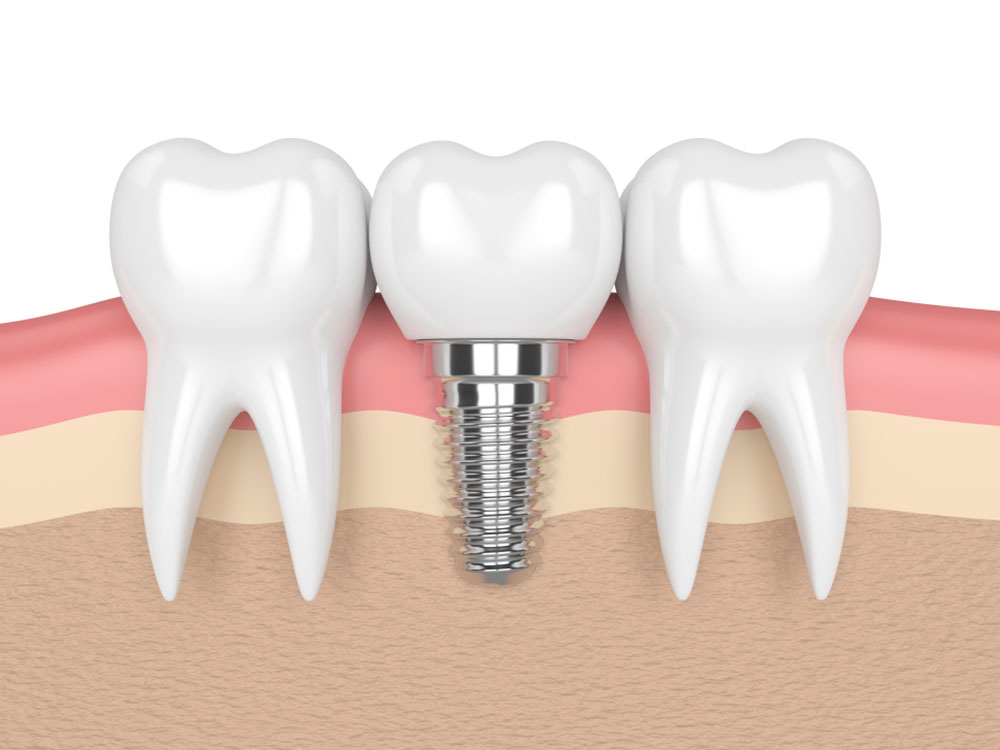In an ideal world, dentists in Ajax would be able to save every badly infected and damaged tooth they treat. Often it is possible to save severely compromised teeth using sophisticated dental treatments, but not always.
When Can a Tooth Be Saved?
Usually, people will go to a dentist in Whitby when they have a severe tooth infection and when the tooth is extremely painful. Your dentist can check the condition of the tooth and will take dental x-rays to see the extent of the infection. If possible, they will suggest root canal therapy to remove the infected nerves in the tooth so it can be restored. However, the remaining portion of the tooth must be in good enough condition to survive as if it is too badly cracked or damaged it may need to be extracted. Also, your dentist will need to assess the likely success of root canal therapy compared with alternative treatments such as removing the tooth and replacing it with a dental implant.
Although teeth that have received root canal therapy can last for years, not all will last forever. It may be necessary to retreat the tooth, and at this stage, treatment becomes trickier, and it may be necessary to consider other options. When the success of root canal treatment is uncertain, it could be preferable to spend the money on a dental implant in Clarington instead.
While tooth decay and subsequent tooth infections are bad enough, they are not the main cause of tooth loss in adults. Instead, this honour goes to periodontal disease. Periodontal disease is better known as gum disease and affects approximately half of all people over age 30 in some degree or other. It’s a disease usually caused by poor oral hygiene which allows plaque bacteria to build up over the gums, creating inflammation and infection and which damages the gums and other tissues supporting your teeth. Eventually, periodontal disease can destroy the bone around teeth, ultimately causing tooth loss. When teeth are lost to periodontal disease, restoring them with dental implants in Pickering can be an excellent solution.
When to Choose a Dental Implant
You can rest assured that your dentist in Oshawa will try their hardest to save damaged teeth, but sometimes removing the tooth is the best course of action and prevents further infection and pain. If saving the tooth isn’t a viable solution, they may well discuss dental implants with you. Dental implants are the most sophisticated and long-lasting solution for tooth loss and are the closest thing to having your natural teeth restored.
Here at Durham Dental Solutions, our highly experienced implant dentists can provide the very latest dental implants that are placed using the most up-to-date techniques., Also, if bone has been destroyed because of periodontal disease or trauma, the infection and damage can be treated and bone artificially replaced with a bone graft. Dental implants are very stable and strong, but they must be situated in good quality bone where they will eventually fuse to the bone so they cannot move.
What to Expect If You Need a Dental Implant
If you do have a tooth that is beyond saving and must be extracted, our dentist in Newcastle may perform socket preservation bone grafting during this treatment. As the tooth is removed, the empty socket is filled with bone grafting material that restores the proper contours and volume. Quite frequently, it’s possible to place the new dental implant on the same day as your tooth is extracted, so your smile is restored as quickly as possible. Once your dental implant is fully restored with your new tooth, it should look and feel entirely natural and will be pain–free. With proper dental care, it could last for years or life.


